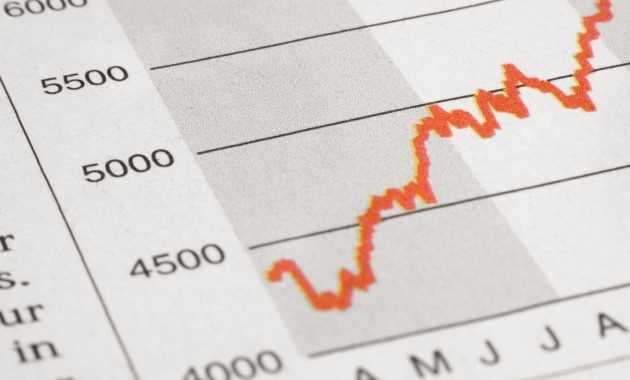(CercleFinance.com) – The Paris Stock Exchange reversed steam compared to 3:35 p.m.: the CAC40 fell from +0.7% to -0.7% towards 6020 Pts.
But this session will remain marked by a phase of capitulation of -5% during the first quarter of an hour (which brought the decline to -15% in 6 sessions).
Things got off to a bad start, several values were reserved for the fall and the specter of a debacle began to hover… it was then that rumors of a resumption of Russia/Ukraine negotiations began to circulate.
He had a meeting between V.Putin and Naftali Bennett (Israeli Prime Minister) on Sunday with the project of a ‘mediation’.
It is finally Turkey which could host a meeting this Saturday (and not Thursday initially planned): the discussions should therefore take place on neutral ground (unlike Belarus).
This may be the time to start a de-escalation of the sanctions/counter-sanctions that are paralyzing the markets.
There follows an equally spectacular rebound of +350Pts which propels the CAC40 index towards 6,100 (+6% in ‘funicular’ mode).
The Euro-Stoxx50 rises from 3,400 to 3,600, the DAX from 12,340 to 13,100 Pts.
On Wall Street, the indices reopened slightly down (less than 1%): after one hour it reached -1.5% for the Nasdaq and -1.2% for the Dow Jones, instead of -2 % anticipated this morning.
Russian troops have continued their advance on all fronts this weekend but are still facing ‘strong resistance from the Ukrainian population’ according to the media: apart from the capture of Kiev and Odessa, practically all the strategic objectives seem however achieved for Vladimir Putin.
In order to make him pay the highest possible price for this success, the United States and the European Union are now considering a ban on Russian oil imports… but this is a double-edged sword that hurts the European economy while US shale oil and gas producers have never earned so much money: a veritable golden age is dawning as ‘shale oil’ -and even Canadian bituminous oil- becomes in 2 months hyper- profitable.
The anticipation of a boycott of Russian oil (25% of imports into Europe, nothing can replace it) caused the barrel of Brent to soar by more than 10%, around $130, after having flirted with $140 early this morning).
Calm seems to be returning with a barrel up 4% towards $122.7.
But if Russia stopped its gas exports, German industry would soon come to a standstill.
The ‘race to safety’ favored gold, a safe haven par excellence, but without excess: the ounce rose a little above $2,000 before falling back to $1,984 (+0.8%) .
The unrest in Ukraine and soaring energy prices are now casting a shadow over the outlook for inflation and growth, which mechanically penalizes stock market valuations.
Analysts at Capital Economics announced on Friday that they have lowered their growth forecast for the euro zone this year, now expected at 2.8% and no longer at 3.5% as before.
JP Morgan had envisaged a halving of growth if oil exceeded $125 and if Germany ran out of gas.
The recent decline in equity markets has however created some buy signals and some strategists are talking about the possibility of an upcoming stock market rebound.
“During the Cuban Missile Crisis of 1962 (…), US equity markets fell 22% in the space of three months, before regaining their peaks in 12 months”, recalls- we at Raymond James.
The Euro suffered another soft spot of -1% towards $1.0810 before recovering to 1.0915 (-0.15%).
Our OATs are now in sharp decline, the yield tends +6.5Pts to 0.47% against 0.415% on Friday; US T-Bonds post +3pts at 1.753%.
In the news of French stocks, several titles have already rebounded by more than 10% intraday, like Alstom, AXA and Stellantis.
Some are finding it harder to recover, as Engie (-4%) warned on Monday of further disruptions in the European gas market, already heavily impacted by the conflict in Ukraine, which has led to unprecedented volatility and a price spike.
The energy group, which recalls that Russian gas currently represents 40% of European supplies, explains that it fears future disruptions in the event that European sanctions were to include Russian gas.
On the other hand, Crédit Agricole (-3%) highlighted Monday “limited” exposures in Ukraine and Russia, where the group is present through two subsidiaries. The bank indicates that the total exposures (‘onshore’ and ‘offshore’) of the Crédit Agricole SA entity in these two countries represented approximately 0.6% of its total commercial commitments at the end of 2021.
Finally, Carrefour announced on Sunday morning a new franchise agreement to strengthen its international presence, an agreement concluded in Israel with Electra Consumer Products and its subsidiary acquired in 2021 Yenot Bitan.
Copyright © 2022 CercleFinance.com. All rights reserved.
Did you like this article ? Share it with your friends with the buttons below.




